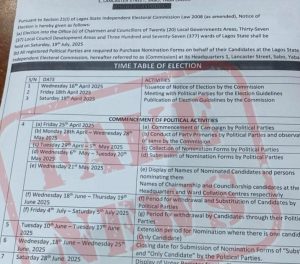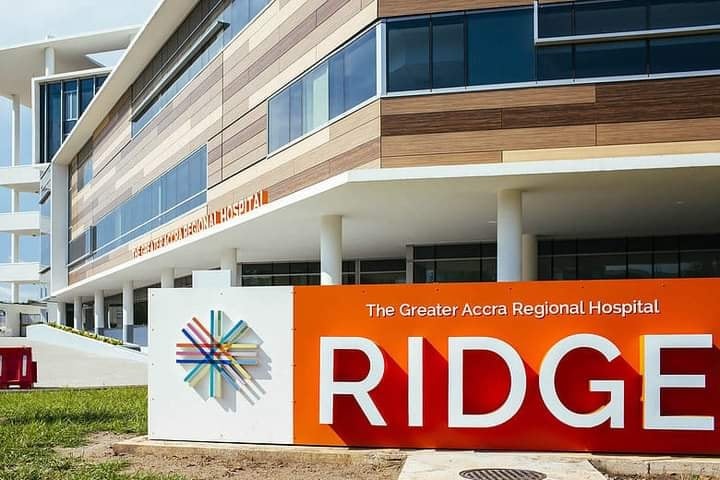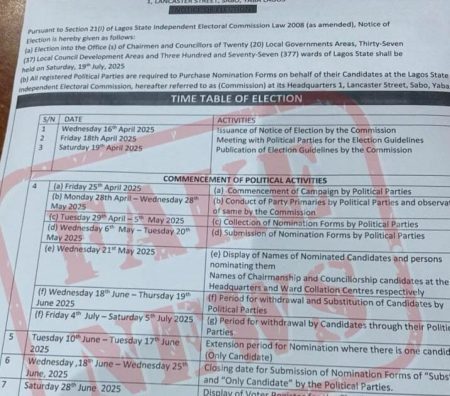The Greater Accra Regional Hospital (GARH), commonly known as Ridge Hospital, has been rocked by a scandal of epic proportions, following a damning report alleging widespread mismanagement, corruption, and procurement violations. The report, compiled by a private investigative body, paints a grim picture of a deeply entrenched system of illicit activities involving key hospital officials, former government appointees, and individuals within the Ghana Health Service (GHS) headquarters. This alleged network appears to have orchestrated a complex web of fraudulent contracts, siphoning millions of cedis from the hospital’s coffers and crippling its ability to provide adequate patient care. The alleged financial malfeasance not only deprives the hospital of vital resources but also undermines public trust in the institution, raising serious questions about accountability and oversight within Ghana’s healthcare system.
At the center of the storm is Rev. Dr. Ralph Armah, the current Medical Director of GARH, who stands accused of complicity in these dubious dealings. The report alleges that Dr. Armah played a key role in approving contracts that have resulted in significant financial losses for the hospital. By facilitating these arrangements, he and other implicated individuals allegedly diverted funds earmarked for essential hospital operations, channeling them instead into the pockets of private companies. Some of these companies, the report suggests, were specifically created for the purpose of exploiting the system, raising concerns about potential conflicts of interest and deliberate manipulation of procurement processes. The allegations against Dr. Armah and others represent a severe breach of public trust and raise critical questions about the ethical standards and oversight mechanisms within GARH’s leadership.
One of the most egregious examples of this alleged misconduct is the Public-Private Partnership (PPP) agreement between GARH and Refuah Ltd. In 2023, when the hospital’s imaging equipment malfunctioned, the management decided to outsource the entire department to Refuah Ltd., a company that had been incorporated mere months before securing the lucrative contract. The investigation revealed that Refuah Ltd., primarily specializing in hospital equipment sales, had no prior experience in medical imaging, raising serious doubts about their competence to manage such a critical department. Despite this lack of experience, Refuah Ltd. was awarded a multi-million cedi contract on June 9th, 2023, with GARH agreeing to pay them a staggering 80% of the imaging department’s revenue. However, the services provided by Refuah Ltd. were minimal, limited to installing an ultrasound machine and conducting minor repairs to existing equipment. The hospital staff continued to operate and maintain the machines, yet the substantial payments to Refuah Ltd. persisted, raising red flags about potential overpayment and misallocation of funds.
The report further details a string of other questionable contracts that have drained GARH’s resources. Riverwoods Medical Equipment and Dialysis Company Ltd., awarded a contract on March 20th, 2019, allegedly misrepresented its credentials to secure the deal. Similarly, Safe Africa Security Services Ltd. was granted a contract in 2017 despite the hospital already possessing an effective in-house security team. This company reportedly received significant payments but failed to provide the stipulated number of security personnel. Another troubling example involves Ash Town Cleaning Services, a company contracted for cleaning services under highly suspicious circumstances. Investigations revealed that this company is not registered with the Registrar of Companies and fails to meet statutory tax and social security obligations. Furthermore, the financial details of this contract remain shrouded in secrecy, fueling suspicions of corruption and a deliberate circumvention of established procurement protocols. The report highlights a clear disregard for due diligence and transparency in the awarding of these contracts, suggesting a pattern of favoritism and potential collusion between hospital officials and private entities.
The cumulative effect of these dubious deals has been devastating for GARH’s finances. The hospital’s imaging department, once a vital revenue stream, has witnessed a dramatic decline in income. In the first half of 2024, revenue from the department plummeted to a mere 1.8 million cedis, a stark contrast to the over 3 million cedis generated in 2022. This alarming trend underscores the severe financial strain caused by the alleged fraudulent activities. The report suggests that GARH’s management not only failed to uphold the principles of transparency and fairness in procurement but actively participated in a series of fraudulent activities that have jeopardized the hospital’s financial stability and its ability to provide quality healthcare.
As investigations continue, the full extent of the alleged corruption at GARH is gradually coming to light. The evidence presented in the report paints a disturbing picture of an institution riddled with financial mismanagement and ethical breaches. The implications of this scandal are far-reaching, affecting not only the hospital’s financial health but also eroding public trust in the healthcare system. The allegations demand a thorough and impartial investigation to hold those responsible accountable and implement measures to prevent such occurrences in the future. Furthermore, the case highlights the urgent need for stronger oversight mechanisms and greater transparency in public procurement processes to safeguard public funds and ensure the efficient delivery of essential services. The future of GARH and the well-being of the patients it serves depend on swift and decisive action to address these serious allegations and restore integrity to the institution.














